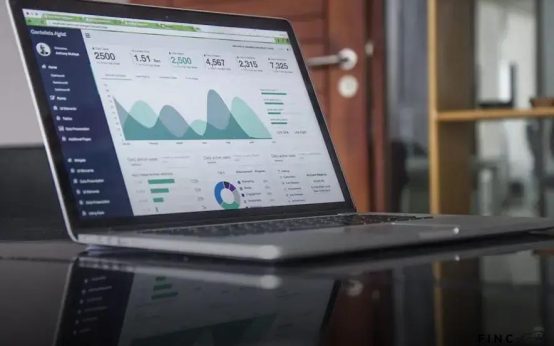Discover how you can sell NFTs for passive income by leveraging the digital art market. Learn what NFTs are and how they can generate continuous revenue. Our guide will walk you through selecting the perfect marketplace, utilizing strategic selling techniques, and safeguarding your digital assets for long-term financial growth.
Understanding NFTs and Their Market Value
Non-fungible tokens, or NFTs, represent a unique asset on the blockchain, offering unprecedented opportunities for creators and investors. They have dramatically reshaped the digital landscape, especially for artists, musicians, and game developers.
NFTs gain value based on their uniqueness and demand. Think of them as rare collectibles or artworks in digital form. The market value of an NFT can fluctuate based on various factors, such as rarity, utility, and the creator’s reputation. Some NFTs have fetched millions due to their historical significance or the fame of the artist.
NFTs can also serve functional purposes beyond art, like granting access to exclusive content or experiences. Understanding these nuances helps in assessing market value and making informed decisions when buying or selling NFTs.
Choosing the Right Marketplace for Your NFTs

When selecting the proper marketplace for your NFTs, consider several factors to ensure you get the most out of your investment. Each marketplace might offer distinct advantages or cater to specific audiences. Begin by evaluating the popularity of the platform. High-traffic marketplaces can expose your NFTs to larger audiences, potentially increasing visibility and sales.
Next, look at the fees each marketplace charges. Different platforms may have varying fee structures, impacting your final profits. Some might charge a flat fee per sale, while others impose a percentage. Knowing these fees helps in budgeting your NFT sales strategy effectively.
Consider the user base of the marketplace too. A diverse and engaged audience might offer niche markets for specific types of NFTs such as art, music, collectibles, or even virtual real estate. Study whether the marketplace aligns with the nature of your NFTs.
Another important aspect is the platform’s reputation. Opt for credible and secure marketplaces that are known for protecting both sellers and buyers. A platform with good reviews can increase buyer confidence, boosting potential sales.
Additionally, check if the marketplace provides support for the type of NFTs you intend to sell. Some platforms might specialize in certain blockchain technologies, so ensure compatibility with your NFTs.
Finally, investigate if the marketplace offers promotional features or tools to enhance your selling strategy. Marketplaces that provide advanced analytics, targeted promotions, or even educational resources can greatly enhance your selling tactics.
Strategies to Maximize NFT Sales
- Leverage Social Media: Use platforms like Twitter and Instagram to connect with potential buyers. Engaging content and regular updates can help attract attention to your NFTs.
- Collaborate With Influencers: Partnering with influencers in the NFT space can help increase visibility. Their endorsement can provide credibility and reach a larger audience.
- Offer Limited Editions: Creating limited edition pieces can create scarcity, driving demand. Clearly communicating the unique aspects of these NFTs can entice collectors.
- Utilize Live Streams: Live demonstrations or showcases of your NFTs can create excitement and encourage immediate purchases. Platforms like YouTube Live or Twitch are great for this.
- Engage in Community Building: Building a strong community around your NFTs can foster loyalty. Engaging with your audience through forums and Discord channels can boost trust and sales.
- Optimize Pricing Strategy: Research market trends to set competitive prices. Consider offering promotions or discounts for early buyers to encourage quick sales.
- Provide Detailed Descriptions: Ensure that each NFT has a detailed and compelling description. Highlight the artwork’s dimensions, edition size, and the artist’s background.
- Use Analytics to Guide Your Strategy: Monitor sales data and website traffic to understand which tactics are effective. Analysing these insights can help in refining the sales approach.
Securing Your NFT Investments

When it comes to securing your NFT investments, there are several crucial aspects to consider. NFTs, like any other digital assets, require a rigorous security approach to protect them from theft and loss.
Use a Secure Wallet: It’s essential to select a trusted and secure wallet for storing your NFTs. Hardware wallets or cold storage solutions are recommended as they offer a higher level of security, being offline and less prone to cyber attacks. Always ensure your wallet has strong, unique passwords and enable two-factor authentication for an added layer of security.
Stay Informed About Scams: The NFT marketplace is evolving, and with it, the types of scams are increasing. Be wary of phishing attempts, fake NFT marketplaces, and deceitful NFT projects. Research thoroughly before purchasing or investing in NFTs, and verify the authenticity of the sellers and platforms.
Smart Contract Security: Smart contracts are integral to the operation of NFTs. Ensure the smart contracts associated with your NFTs have been audited for security vulnerabilities. This helps mitigate the risk of bugs or exploits that can be used to compromise your assets.
Keep Software Up-to-Date: Always keep your devices and software, including wallets and NFT platforms, updated. Developers regularly release updates to patch security vulnerabilities, so staying current enhances your protection against potential threats.





